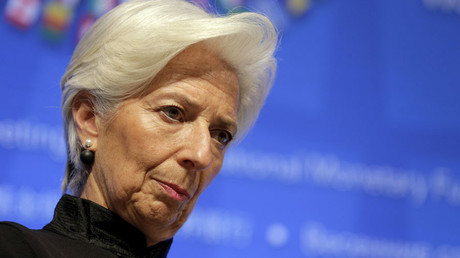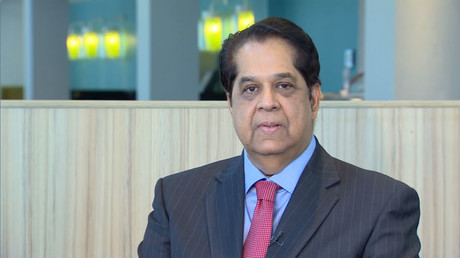The criticism comes from the Fund’s own watchdog, the Independent Evaluation Office (IEO).
The IEO, which answers solely to the board of executive directors, accuses the IMF of misleading the board.
The report looked into how the IMF handled the eurozone crisis, which kicked-off with the May 2010 bailout of Greece, and subsequently spread to Ireland, Portugal and Cyprus.
The IEO found the “IMF’s pre-crisis surveillance identified the right issues but did not foresee the magnitude of the risks that would later become paramount.”
The watchdog blamed the Fund for its “overly optimistic growth projections,” especially in relation to Greece, and the inability to learn lessons from past mistakes.
In Greece, the IMF violated its own rules by giving Athens a bailout that couldn’t guarantee the financial aid would bring the country’s debt under control, or help the economy recover.
The Fund’s Chief Christine Lagarde has partly admitted the accuracy of the allegations concerning IMF policy towards Greece.
“Greece, however, was unique: while initial economic targets proved overly ambitious, the program was beset by recurrent political crises, pushback from vested interests, and severe implementation problems that led to a much deeper than expected output contraction,” she said.
“On the other hand, Greece undertook enormous adjustment with unprecedented assistance from its international partners. This enabled Greece to remain a member of the euro area – a key goal for Greece and the euro area members,” Lagarde added.
There has been growing discontent in Latin America and Asia about the way the IMF used funds to save rich EU nations.
According to the findings, the IMF judgment in solving the situation in Greece, Ireland, Portugal and Cyprus has “raised issues of accountability and transparency, which helped create the perception that the IMF treated Europe differently.”
The IMF was also criticized for making politically motivated decisions in solving the financial crises.
“The credibility of the IMF comes from the technical competence and independence of its staff and the Managing Director must ensure that its technical work is protected from political influence,” the report said.
Lagarde dismissed the IEO’s call for building up the Fund’s defense against political interference.
“I support the principle that the IMF’s technical analysis should remain independent. However, I do not accept the premise of the recommendation, which the IEO failed to establish in its report, and thus do not see the need to develop new procedures,” she said.
The report is seen as an embarrassment to Lagarde, who is currently facing trial in France for alleged negligence over a fraudulent €405 million payout during her term as the country’s finance minister in 2008.
Article source: https://www.rt.com/business/353914-imf-eu-euro-greece/?utm_source=rss&utm_medium=rss&utm_campaign=RSS


Speak Your Mind
You must be logged in to post a comment.